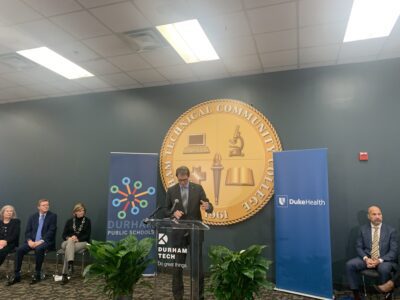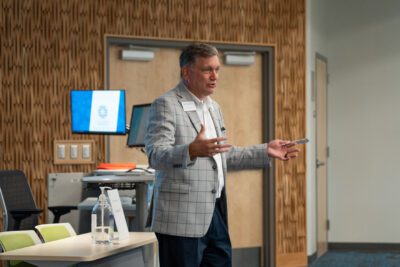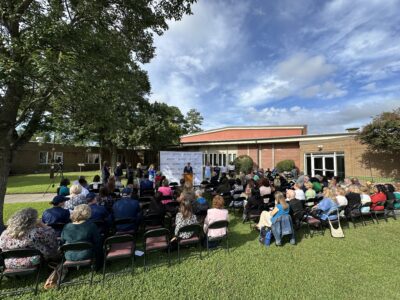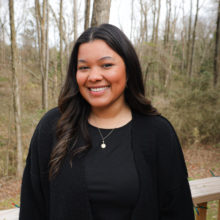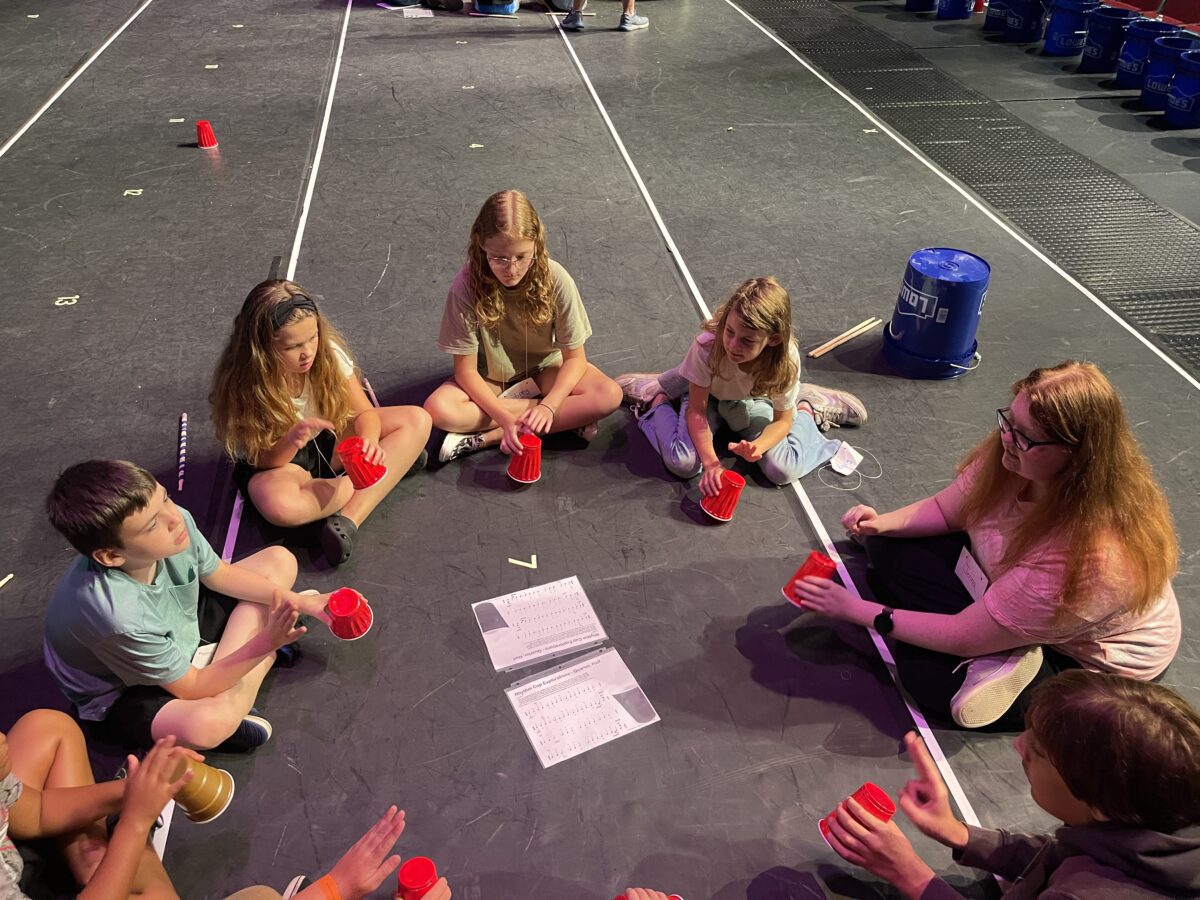
|
|
College of The Albemarle (COA) serves seven counties on four separate campuses in northeastern North Carolina. Like most community colleges in the state, COA serves students 18 years old and younger during the year through dual enrollment. In the summer, COA further widens the net of its student population by hosting multi-day camps for elementary, middle, and high school students at each of its campuses.
Camps begin once K-12 schools dismiss and run the entire summer until school returns in August. The camp offerings are different each week, but COA works to ensure that its most popular camps are available more frequently. Nearly all of this summer’s camps are full or near-full, with a few even over capacity.
Attending COA’s summer camps, some students will visit the college for the first time, despite growing up nearby. For high school students thinking about enrolling, the camps can serve as a chance to test out different programs before fully committing. For middle and elementary school students, COA’s summer camps plant the seed of what kind of careers and opportunities are available in their communities.
Dr. Jennifer Lopes, vice president of learning at COA, said the camps are part of what she called the school-to-COA-to-industry pipeline. She singled out science, technology, engineering, and math (STEM) fields in particular as a useful connection for students.
The college has hosted summer camps for years, but thanks to a funding partnership with STEM East, COA now offers all of its STEM-related camps free of charge and provides snacks, making the already far-reaching program even more accessible. This is the college’s second year partnering with STEM East. Non-STEM camps are still offered at a low rate.
EdNC visited COA’s Elizabeth City and Dare campuses to check out the college’s first full week of camp.
![]() Sign up for the EdDaily to start each weekday with the top education news.
Sign up for the EdDaily to start each weekday with the top education news.
Sparks fly at COA STEM camps
STEM-related camps include welding, HVAC, healthcare, cybersecurity, and more. While students are introduced to these new skills and trades, they hear about how they can do the work in their backyards.
Fans hum loudly in the welding classroom at COA-Dare. Amid welding booths and equipment, Adam Cahoon, a COA-Dare welding instructor, is teaching the basics to students. He explains the different types of welding and the technical vocabulary of the trade — “MIG,” “TIG,” and “Stick.”
Students at the welding camp use a simulator that allows them to practice everything a welder might do, minus the heavy tools and sparks. Students weld virtually while fake sparks fly on screens displaying military hangars or other industrial workplaces. Then, the simulator provides an assessment, helping them understand what went right and what went wrong.
Enrolled COA students also log time in the welding simulator before they enter a welding booth. Instructors say the simulator allows students to gain the muscle memory required for different types of welds, while saving the college money and materials.
In one example of the what Lopes called the industry pipeline, Cahoon and the other welding instructors have decades of experience in the local area, meaning they can connect students with employers for job opportunities.
Meanwhile, at COA’s Currituck campus, students arrive at the college’s hangar and learn the mechanics of airplanes. Students design and build a NASA airfoil, then test it in a wind tunnel to measure stall characteristics. Students also get to “taxi” an airplane, steering with their feet while the aircraft is towed behind a golf cart. Instructors introduce students to tools like drills, rivets, rivet guns, and bucking bars — all used to create airplane parts.
COA-Currituck is an apt location for students to learn about airplane mechanics, with Kill Devil Hills — the birthplace of aviation — nearby.

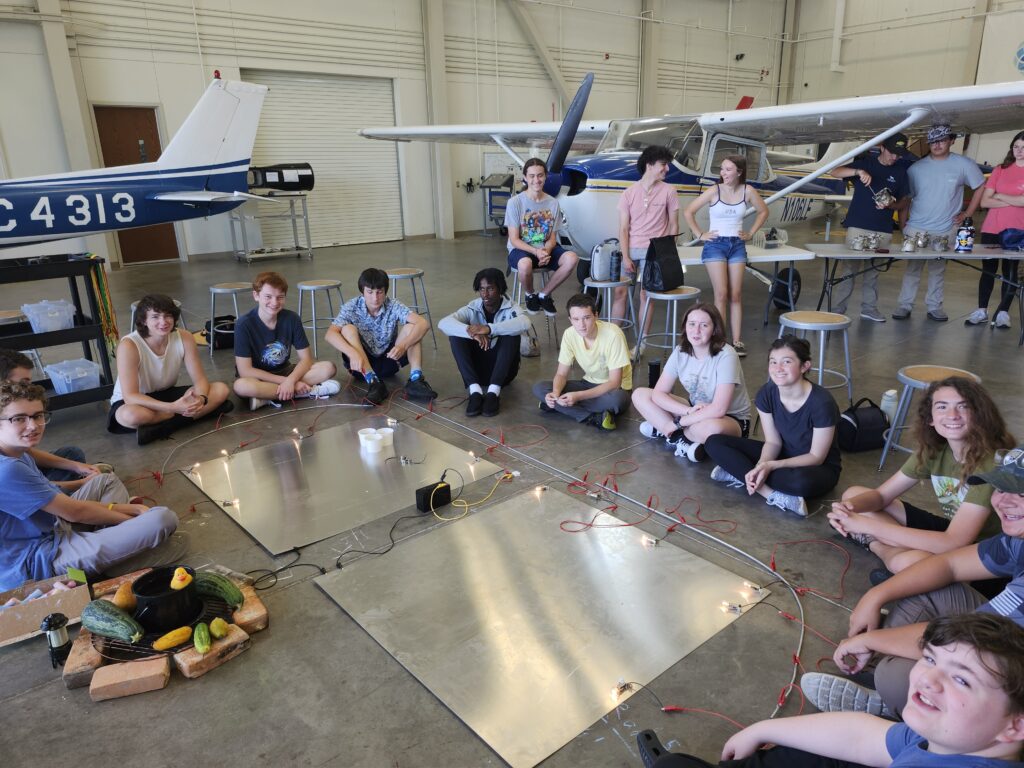
Drumming up new interests
Aside from the trades and STEM, COA camps allow students to explore their creative sides through fiber arts, music, and ceramics.
The ceramics studio at COA’s Dare campus is wide and bright, filled with light from huge windows. Sinks line the walls, and the pottery of former students fills the shelves.
Rather than starting with a pottery wheel, students begin with handbuilding, a technique where clay forms are created using one’s hands. Sarah Gannon, an adjunct instructor at COA-Dare, explained that starting the students on handbuilding projects sets them up for success and encourages them to keep trying with pottery.
“One of the things I find is the most important is that people are successful,” Gannon said. “If they have something in the beginning that makes it seem achievable, then they’re more likely to keep going.”
To learn the art of handbuilding pottery, students use balloons to support their clay. They hand-build shapes and use different materials, like flowers or texture plates, from around the room to add designs to their pottery. Some designs will extend off of the pots, like sculptures, and others are pressed into the clay, like stamps.
Some students have been introduced to clay before, but others are getting their hands dirty for the first time. All are learning that clay is malleable and can be manipulated, adding water and flattening the clay to meet the needs of their ideas.
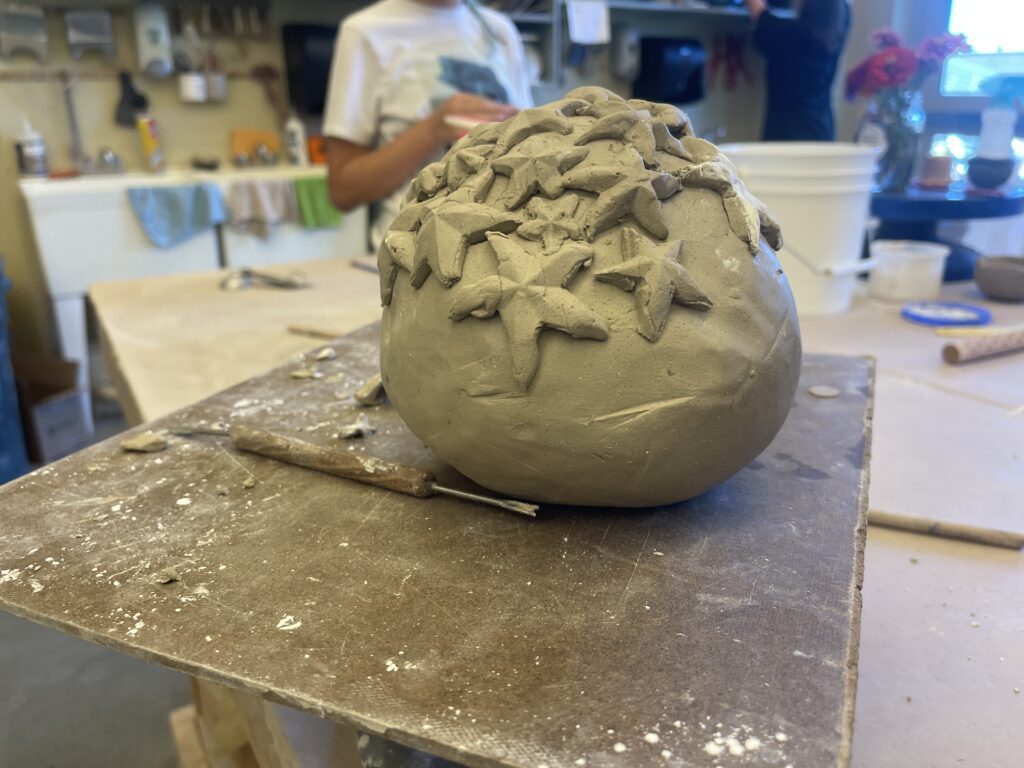
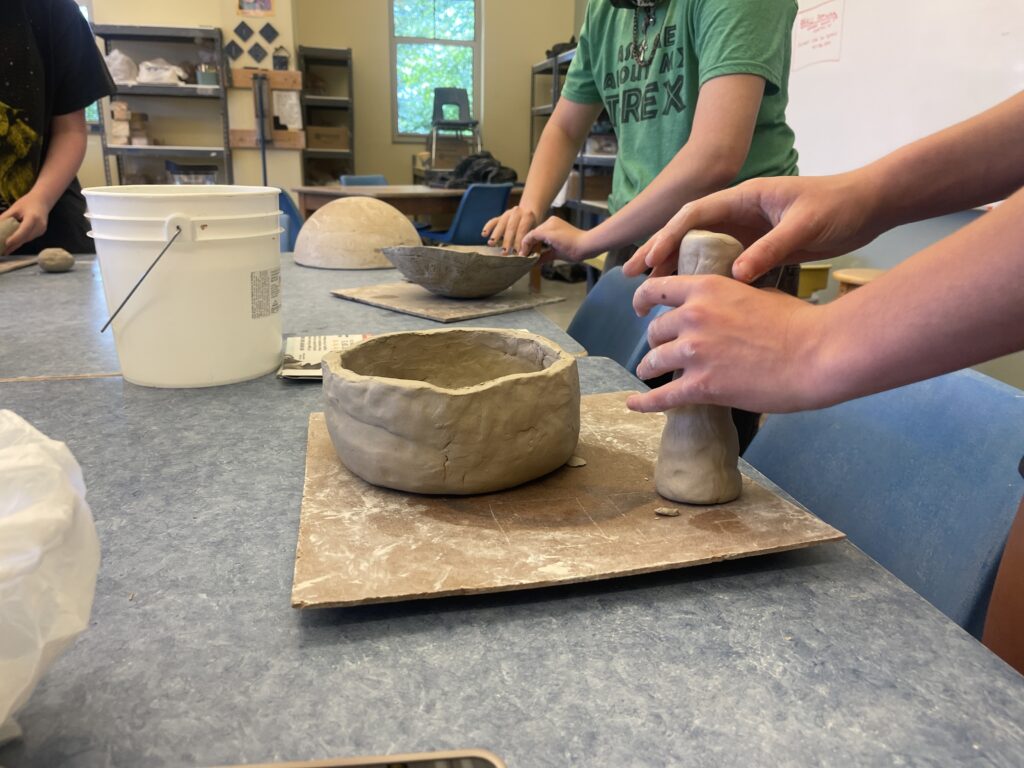
The theater in COA’s Performing Arts Center is dim, but central stage is illuminated by orange lights. Students sit in circles, holding red plastic cups, learning rhythms. They make maracas out of easter eggs and spoons, learn to follow a conductor, and eventually get their own pair of drumsticks.
Eventually, Lowe’s buckets become drums and students drum to their heart’s content. At the Bucket Brigade music camp, Sandra Krueger, COA’s assistant professor of music, teaches students the art of percussive music.
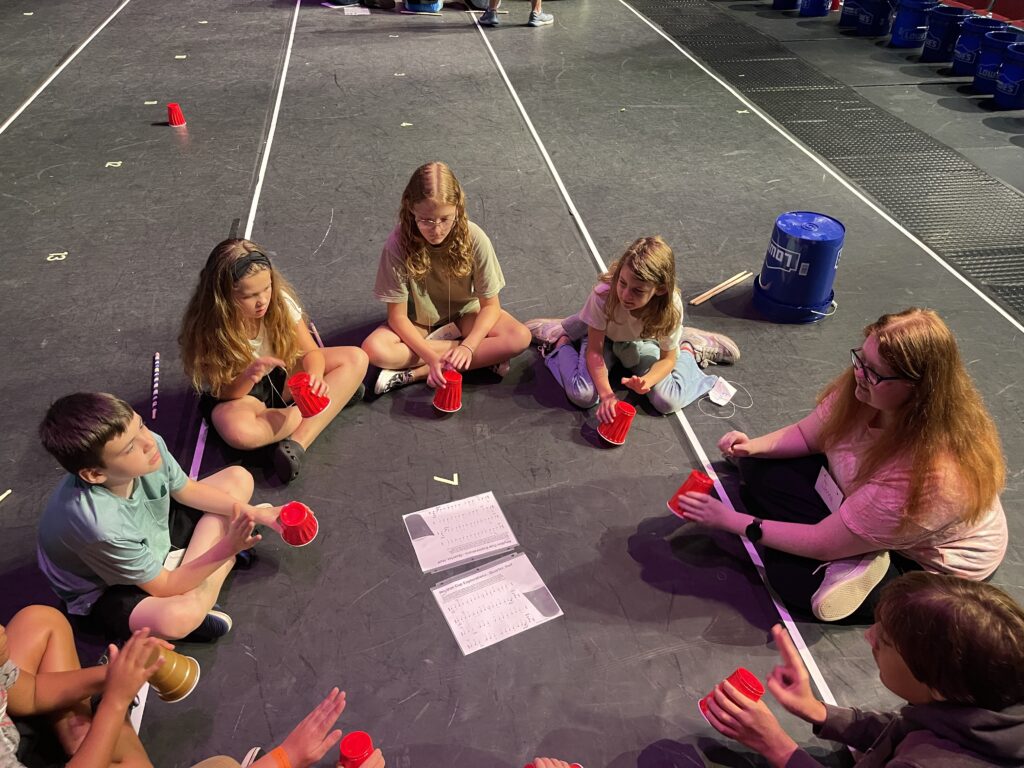
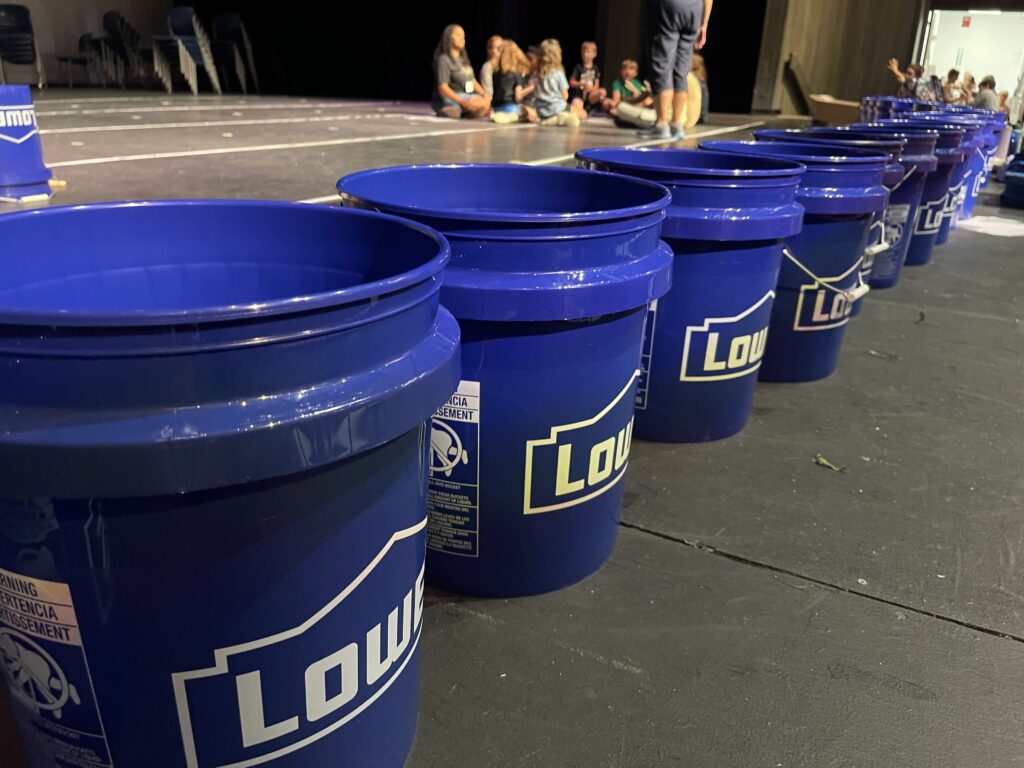
‘The sky’s the limit’
COA summer camps allow students to explore what the college offers.
Some students will attend babysitting camp, where they learn some basics of early childhood education and receive their CPR certification. They leave prepared for babysitting gigs.
Some students attend the culinary camp at COA-Edenton, learning the basics of preparing food in a kitchen. Before they leave each day, students prepare a meal together.
Others, at COA-Elizabeth City, learn the basics of financial management and consider what their budget might look like if they pursue their dream careers. Careers like “influencer” and “NBA player” can be seen on students’ computer screens, as well as “teacher” and “engineer.”
Later this summer, students who attend musical theater camp will learn choreography, costume design, set building, and everything else it takes to create a successful show.
Through the camps, COA helps students think about their futures, no matter where their interests lie. Lisa Meads, the dean of arts and sciences at COA, says that’s the most important part: allowing students to explore everything, from music and theater to welding and HVAC. The college wants students to be exposed to different disciplines, she said.
“I’m excited that the college is able to provide a variety of those experiences so students can get their feet wet,” Meads said. “Where they go next? The sky’s the limit.”
Recommended reading
